Decap CMS (Netlify CMS)
Decap CMS streamlines content management with collaborative workflows, customizable models, and multi-channel delivery, empowering teams to publish confidently and efficiently.
Learn moreDecap CMS (Netlify CMS)Decap CMS streamlines content management with collaborative workflows, customizable models, and multi-channel delivery, empowering teams to publish confidently and efficiently.
Learn moreDecap CMS (Netlify CMS)WordPress.com delivers seamless hosting with a user-friendly block editor, extensive plugin marketplace, and enterprise-level features, empowering creators and teams to scale effortlessly.
Learn moreWordPress.com
No reviews yet
Entry Pricing: Free
HubSpot CMS Hub streamlines content management with centralized collaboration, efficient workflows, and multi-channel publishing, empowering teams to reduce publishing time and enhance content delivery.

No reviews yet
Cosmic is a powerful CMS that streamlines content modeling, collaboration, and multi-channel delivery, enabling teams to publish faster and with greater confidence. Effortless workflows and robust governance included.

No reviews yet
Sulu CMS streamlines content management with collaborative workflows, robust localization, and multi-channel delivery, empowering teams to publish efficiently and confidently.

No reviews yet
WordPress.org is a powerful CMS that streamlines content creation, collaboration, and multi-channel publishing, enhancing team efficiency with robust workflows and SEO tools.
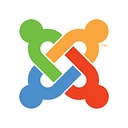
No reviews yet
Joomla is a powerful CMS that streamlines content management, enhances collaboration, and accelerates publishing across multiple channels, all while ensuring governance and SEO optimization.

No reviews yet
Ghost is a powerful CMS that streamlines content creation, collaboration, and multi-channel delivery, enabling teams to publish confidently and efficiently with robust workflows and governance.

No reviews yet
Craft CMS streamlines content management with customizable workflows, localization, and multi-channel delivery, empowering teams to publish efficiently and confidently across platforms.

No reviews yet
Entry Pricing: Free
Streamline your content management with Grav: collaborate seamlessly, optimize workflows, and deliver rich experiences across channels—all while maintaining control and governance.

No reviews yet
Umbraco CMS streamlines content management with a user-friendly interface, robust workflows, and multi-channel delivery, empowering teams to publish efficiently and confidently.

No reviews yet
Bloomreach Content streamlines content management with centralized collaboration, robust workflows, and multi-channel delivery, empowering teams to publish efficiently and confidently.
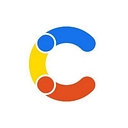
No reviews yet
Streamline content management with Contentful. Centralize assets, collaborate on drafts, and publish efficiently across channels—all while maintaining governance and optimizing for SEO.

No reviews yet
Entry Pricing: Free
Strapi is a powerful CMS that streamlines content modeling, enhances editorial workflows, and supports multi-channel delivery, empowering teams to publish efficiently and confidently.

No reviews yet
DatoCMS streamlines content management with centralized workflows, robust collaboration tools, and seamless multi-channel delivery, empowering teams to publish confidently and efficiently.
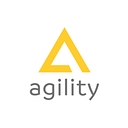
No reviews yet
Agility CMS streamlines content management with centralized workflows, customizable models, and multi-channel delivery, enabling teams to publish faster and collaborate efficiently.

No reviews yet
ButterCMS streamlines content management with centralized workflows, robust collaboration tools, and multi-channel delivery, empowering teams to publish efficiently and confidently.

No reviews yet
Payload CMS streamlines content management with a fast UI, robust workflows, and multi-channel delivery, empowering teams to publish efficiently and confidently while maintaining control and governance.

No reviews yet
Builder.io is a powerful CMS that streamlines content management, enhances collaboration, and accelerates publishing across channels, ensuring efficient workflows and robust governance.
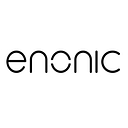
No reviews yet
Enonic XP streamlines content management with a collaborative UI, robust workflows, and multi-channel delivery, empowering teams to publish efficiently with full governance and SEO support.

No reviews yet
Entry Pricing: Free
ApostropheCMS streamlines content management with robust workflows, localization, and multi-channel delivery, empowering teams to publish efficiently and confidently across platforms.

No reviews yet
Concrete CMS streamlines content creation and publishing with a user-friendly interface, robust workflows, and multi-channel delivery, empowering teams to collaborate efficiently and publish confidently.

No reviews yet
Squarespace streamlines content management with centralized workflows, seamless collaboration, and multi-channel delivery, empowering teams to publish faster and more efficiently.

No reviews yet
Kontent.ai streamlines content management with a centralized system for collaboration, efficient workflows, and multi-channel delivery, empowering teams to publish confidently and quickly.

No reviews yet
Streamline your content creation with CloudCannon: a powerful CMS for collaborative publishing, efficient workflows, and multi-channel delivery, ensuring speed, control, and seamless localization.

No reviews yet
Entry Pricing: Free
Wix streamlines content management with centralized workflows, customizable models, and multi-channel delivery, enabling teams to publish faster, collaborate seamlessly, and optimize performance.

No reviews yet
October CMS streamlines content management with a user-friendly interface, robust workflows, and multi-channel delivery, empowering teams to publish efficiently and collaborate effectively.

No reviews yet
Entry Pricing: Free
Hygraph is a robust CMS that streamlines content modeling, collaboration, and multi-channel delivery, enhancing publishing speed and efficiency while ensuring governance and SEO optimization.

No reviews yet
Entry Pricing: Free
Sanity is a powerful CMS that streamlines content modeling, collaboration, and multi-channel publishing, enabling teams to deliver updates confidently and efficiently.
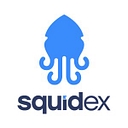
No reviews yet
Squidex is a powerful CMS that streamlines content modeling, collaboration, and multi-channel publishing, enhancing workflows while ensuring governance and performance for teams.

No reviews yet
Entry Pricing: Free
Prismic streamlines content management with customizable models, efficient workflows, and seamless multi-channel delivery, empowering teams to publish confidently and swiftly.

No reviews yet
Drupal is a powerful CMS that streamlines content creation, collaboration, and multi-channel delivery, ensuring efficient workflows, robust permissions, and optimized performance for teams.
As digital content grows in volume and complexity, managing it at scale across websites or multiple channels becomes a major challenge. Keeping content organized, up-to-date, and consistently formatted is difficult without the right tools. Content Management Systems (CMS) software offer a solution by providing a centralized platform to create, organize, and publish digital content efficiently. Instead of hand-coding pages, CMS tools let teams of content managers, web developers, and business owners collaborate through a user-friendly interface, ensuring consistency and saving time. These platforms are essential for blogs, company websites, news outlets, and any content-driven platform. Traditional CMS platforms (like WordPress, Joomla, or Drupal) include built-in front-end presentation, while modern headless CMS apps (such as Contentful or Strapi) focus on delivering content via API to any website or app front-end, offering greater flexibility.
Key features of a robust CMS include:
A CMS (Content Management System) is a software application or platform that allows users to create, edit, and publish digital content (such as website pages, blog posts, etc.) without needing to write code. It provides an administrative interface where content can be managed easily – you can format text, upload images, and organize pages through simple tools. The CMS handles the behind-the-scenes tasks of storing content and displaying it on your site, so multiple people (with different permission levels) can collaborate and keep a website up-to-date without technical expertise.
A traditional CMS is a monolithic platform that includes both the content management back-end and the front-end presentation layer. In a traditional CMS (like WordPress, Joomla, or Drupal), you manage content and also use built-in themes or templates to determine how that content is displayed on your website. A headless CMS, on the other hand, has no fixed front-end; it only manages and delivers content via an API. This means a headless CMS stores your content and lets you retrieve it (for example, as JSON data) to display on any device or front-end you choose (website, mobile app, etc.). The “head” (presentation) is separated from the body (content repository), giving developers more flexibility to design custom front-ends and deliver content across multiple channels.
A CMS platform is useful for anyone who needs to manage website content easily and frequently. Non-technical users like small business owners, bloggers, or content marketers benefit from CMS software because it lets them update site content without writing code. Mid-sized and large companies use CMS tools to enable their content teams to create and publish updates efficiently, maintaining consistency across the site. Even web developers leverage CMS platforms to speed up development and empower clients or team members to handle content changes directly. In short, if you have a website or app that is content-driven or requires regular updates (especially with multiple contributors), using a CMS can greatly simplify your workflow.
When evaluating CMS software, look for features that match your content needs and make management easy. Important features include an intuitive content editor (so you can format text, add images, and publish without hassle), flexible design options or templates to customize the site’s appearance, and robust content organization (categories, tags, search functionality). SEO features are critical as well – ensure the CMS lets you edit meta tags, URLs, and has tools or plugins for optimizing content for search engines. If you’ll have a team, check for user management with roles and permissions, so you can control who can edit or publish content. Additionally, consider extensibility and integrations: a good CMS should allow adding plugins or connecting with third-party services (like analytics, e-commerce, or marketing tools) to expand functionality as your requirements grow. Finally, keep an eye on factors like performance, security, and community support, which are important for long-term success.
Yes. Modern CMS tools are built to handle all of these aspects. For media, nearly all content management systems provide a media library where you can upload images, videos, and documents, then easily insert them into your pages. Regarding SEO, a quality CMS will let you define page titles, meta descriptions, URL slugs, and often generate SEO-friendly sitemaps; many also support plugins or built-in features to guide on-page SEO best practices. As for user permissions, CMS platforms come with multi-user management – you can create accounts for administrators, editors, authors, and other roles, each with specific permissions. This means you can have an entire team working on content with proper access controls (for example, writers can submit drafts that editors must approve). All these capabilities are typically included out-of-the-box or available through extensions in popular CMS software.
Absolutely. Most established CMS platforms are designed to scale from small sites to enterprise-level deployments. They can handle growing numbers of pages, blog posts, and media files, as well as surges in web traffic, especially when configured with proper hosting and caching. For large content teams, many CMS tools offer advanced features like content versioning, workflow approvals, and collaboration dashboards to manage contributions from dozens or even hundreds of users. If your website or application grows, you can often upgrade the infrastructure (for self-hosted CMS) or choose a cloud-based or enterprise plan (for SaaS CMS) to meet higher demand. Headless CMS solutions are also inherently scalable, as they allow content to be served via content delivery networks (CDNs) and used across multiple front-ends. In summary, a well-chosen CMS will be capable of supporting your content needs as your organization or website expands.